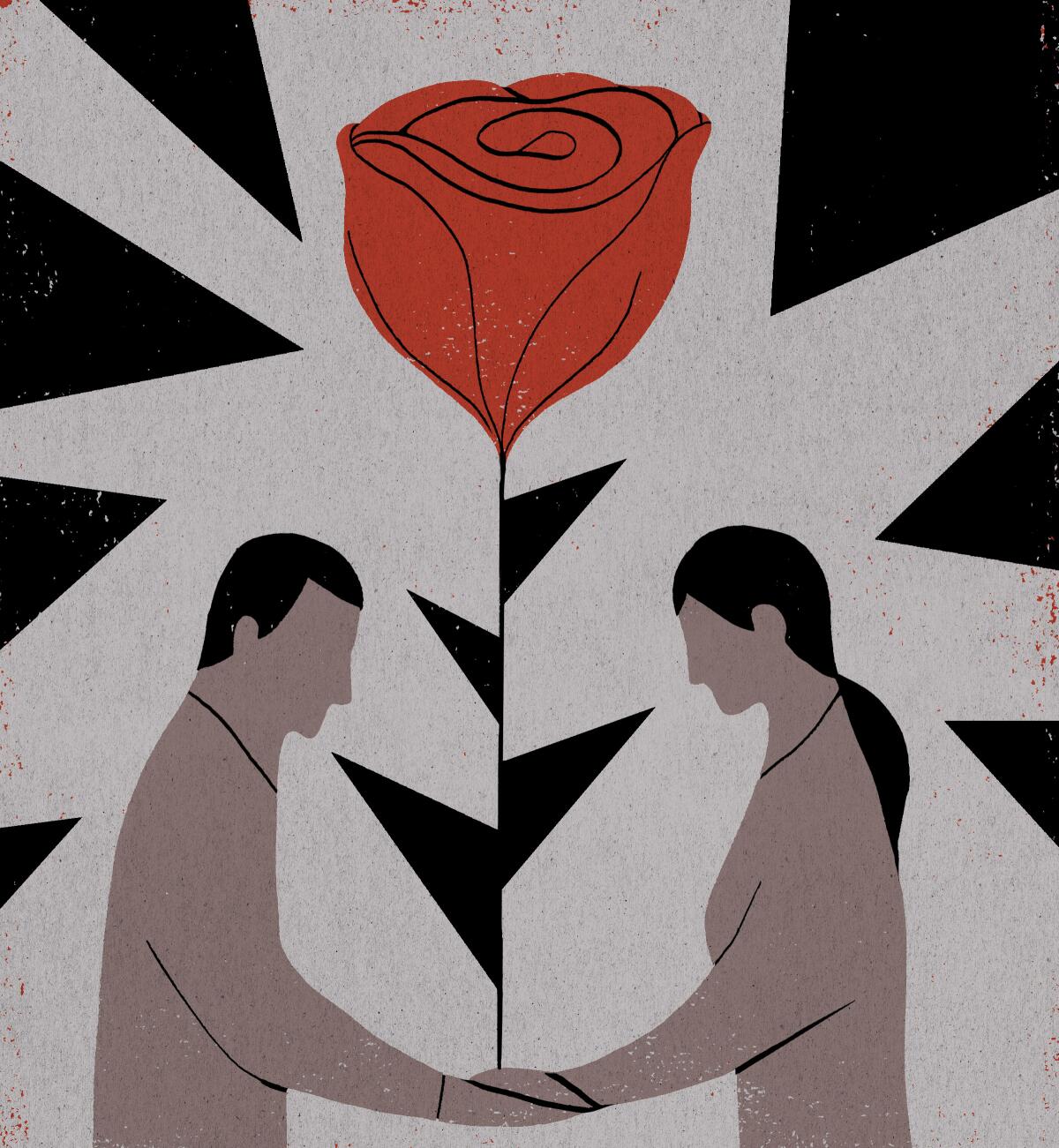Fear and romance for people without papers

- Share via
On Valentine’s Day, we focus on love’s gift of comfort and partnership, knowing love can also bring pain and heartache. When you don’t have papers, these extremes are magnified.
Immigration law is used to commit horrors every day — caging children, deporting parents, separating loved ones. But its damage is also subtler, steadily undercutting romance, love and families.
I interviewed more than 150 undocumented Latinx young adults, and their romantic partners, in Southern California for my research on how immigration policy affects families. I traced how undocumented immigrants dealt with financial insecurity, deportation threats and limited pathways to legalization. Their lives are circumscribed by state policies that determine access to a driver’s license and sources of identification. These realities fundamentally shape the material, psychological and social foundations of romantic relationships and families.
Social science research has long shown that reduced access to resources among low-income people and racial minorities can disrupt family formation and the well-being of family members. These inequalities are intensified in the lives of undocumented young adults.
Immigration status often constrains the decisions these young adults make about whom they date and how their relationships progress. One young man shared with me a painful memory from high school. He decided not to date a girl because she was also undocumented. Not wanting to endanger their future opportunities, he thought, if you love her, let her go. And so he did. A decade later, he still feels the ache of guilt from letting his undocumented status control his heart. Many others had similar stories.
They also worried about how U.S. citizen partners would react once they revealed their status. Would they leave in search of better options? Most didn’t. But the weight of undocumented status grew heavier as couples considered marriage. Often couples hoped to pursue legal status through marriage, but this is a complex legal path that is not viable for the majority of undocumented immigrants.
Men often felt additional pressure to provide. They struggled to pay for dates. Even driving to pick someone up created the risk of interacting with police on a traffic stop and raised the possibility of deportation. They agonized about how to provide for their family. Some gave up on love. One man rationalized: “If I’m going to have this crappy life, then I’d rather just be doing it myself and not bring somebody else down with me.”
Women had more flexibility negotiating these obstacles. But many had experienced the exhilaration of a date quickly devolving into stigma and shame when they were outed as undocumented or denied service at bars because of their lack of a California ID.
Citizen partners, not surprisingly, became entangled in this web. Though couples sought to build better lives for themselves and their children, their efforts were often foiled by the undocumented partner’s limited options for achieving upward mobility through education and workplace advancement.
Those with citizenship also had to live with the threat of their partner’s deportation and the prospect of making the impossible choice between having their family divided by borders or relocating together outside the U.S. These consequences resulted in multigenerational inequalities as punishments were shared with their U.S.-born children.
But love also extends comfort and hope. Citizen partners often took on more responsibilities — from doing the driving to picking up some of the financial obligations. One woman, who had been dating an undocumented person for seven years, remembered witnessing the toll his status took as he struggled to pay his full college tuition with small scholarships and his meager wages as a waiter. She felt helpless. All she could do was open up a safe space for him to talk. To her this was small, but for him this act of love was huge. They cried together in moments of stress and fear. Their love provided solace in these dark moments, allowing them to weather these trials.
The laws that threaten undocumented immigrants’ most intimate relationships also harm their children, families, and our whole society. Love can’t conquer all, but it can provide refuge in these times. It can compel us to act with more love in the face of injustice.
Laura E. Enriquez, an assistant professor of Chicano/Latino Studies at UC Irvine, is author of the forthcoming book “Of Love and Papers: How Immigration Policy Affects Romance and Family.”
More to Read
A cure for the common opinion
Get thought-provoking perspectives with our weekly newsletter.
You may occasionally receive promotional content from the Los Angeles Times.









